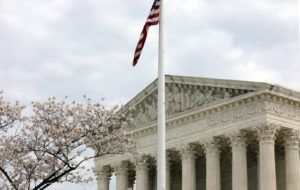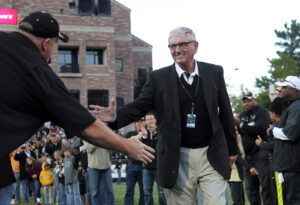
NEW YORK CITY (BP)–The number of people living with AIDS globally has reached its highest level: 40.3 million, up from an estimated 37.5 million in 2003, according to a United Nations report released in conjunction with World AIDS Day, Dec. 1.
Sub-Saharan Africa continues to be the most affected globally, with 64 percent of new infections, or more than 3 million people, and nearly 26 million people living with AIDS, the U.N. reported. More than 13 million children in Africa have been orphaned by AIDS.
Of the more than 3 million people who have died so far this year from AIDS, only about 15,000 of the deaths were in the United States.
An article on the website of the Kaiser Family Foundation, which has had a continuing interest in the AIDS issue, notes, “With a theme of ‘Keep the Promise,’ this year’s World AIDS Day on Dec. 1 seeks to focus public attention on fulfilling commitments in the fight against HIV/AIDS.”
The Kaiser Family Foundation states, however, “In general, the public recognizes HIV as a problem facing the country and is supportive of federal spending to fight the epidemic. However, a few recent trends indicate that their sense of urgency may be somewhat muted.”
“HIV/AIDS is both a cause and a consequence of the [African] continent’s poverty, and it threatens to lock some of the worst-affected countries in a vicious downward spiral,” columnist Madeleine Bunting of The Guardian newspaper in England wrote. “Steel yourself, the worst is still to come: in 10 years those infected today will be very sick, dying or in a desperate search for antiretrovirals. How does 40 percent of a country die? What kind of societies do you have when children bring up children?”
Herb Lusk is working on one answer.
A Southern Baptist, American Baptist and National Baptist pastor of Greater Exodus Baptist Church in Philadelphia -– and former Philadelphia Eagles running back -– Lusk formed the nucleus of what is becoming a movement of evangelical churches in the United States under the banner of “Stand for Africa.”
“Every time I speak about Africa I want to say it right because it’s a matter of life and death,” Lusk said. “I’d like to see every major city in America do a Stand for Africa crusade…. This is interdenominational, this is across the board. We’re talking about the whole church coming together.”
John Perkins, a noted community activist, is one of many evangelicals voicing support for the Stand For Africa initiative.
“AIDS in Africa is an issue so big that it will take the entire Body of Christ working together to change the course of this plague,” Perkins wrote on the front of a Stand for Africa brochure. “The civil rights movement and apartheid were the last social movements that required people regardless of color, class or gender to unify into action. We must do this for Africa!”
–30–
Information about the Stand for Africa initiative can be accessed at www.standforafrica.org.












